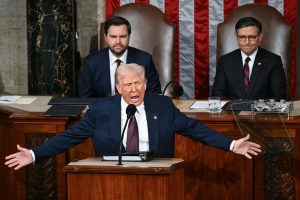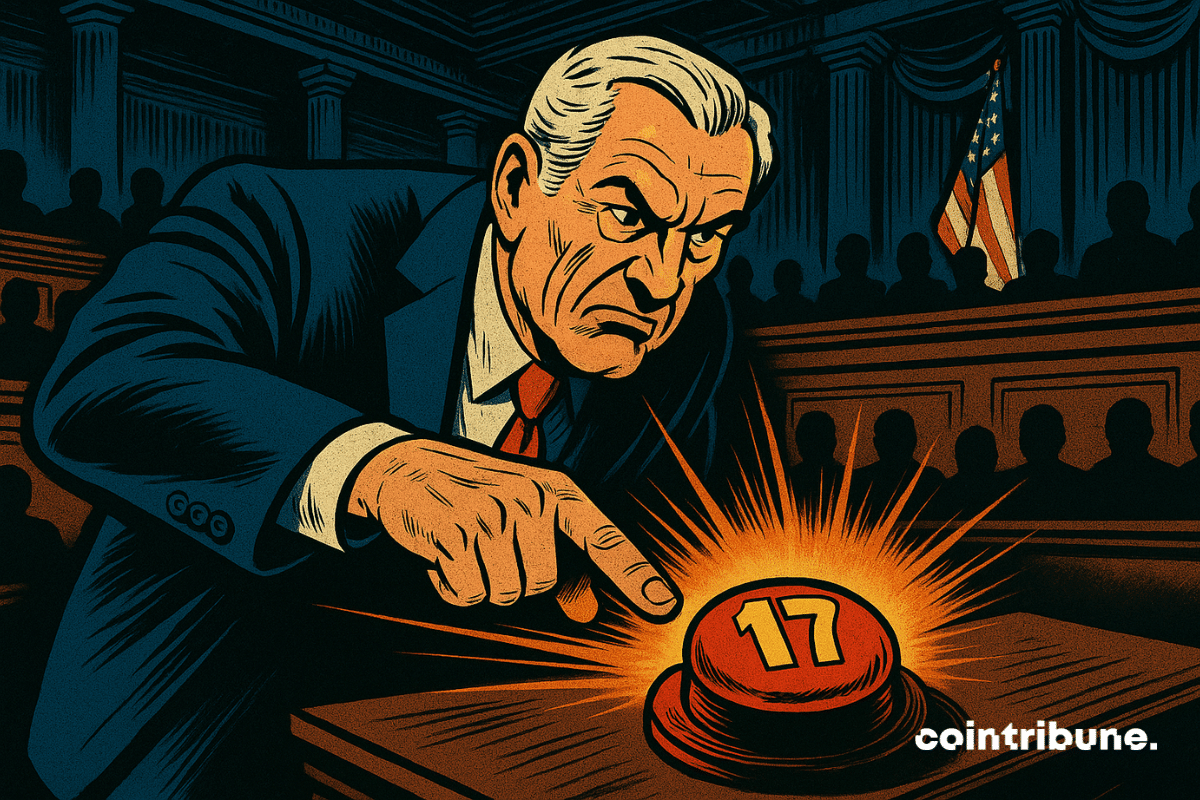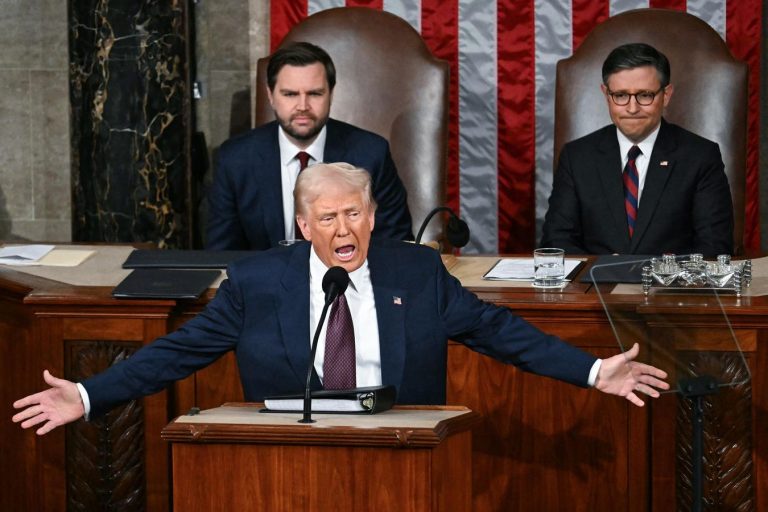Sat 14 Jun 2025 ▪
5
min read ▪ by
While the crypto market desperately searches for direction, the US Senate is preparing to lay the groundwork for a legal framework for stablecoins. The June 17 vote could very well reshuffle the deck, both for institutions and digital giants.
In Brief
- On June 17, US senators will vote on the GENIUS Act.
- The debate is clouded by suspicions of conflicts of interest related to the Trump family, and amendments aim to prevent any collusion between lawmakers and digital asset issuers.
- Beyond stablecoins, the power struggle between the State, Big Tech, and decentralized finance is at play.
The Moment of Truth for American Stablecoins
The United States may be on the verge of a decisive step in cryptocurrency regulation. This is not another rumor or a bill buried in committee: the US Senate will vote this Monday, June 17, on a text that could serve as a cornerstone for stablecoins. The GENIUS Act, an acronym that smells like marketing strategy, intends to pave the way, structure, and legitimize a market still largely left to itself.
But behind the promise of a legal framework, political maneuvering and private interests blur the lines. This vote is not merely a technical decision: it embodies a real power struggle between monetary innovation and institutional authority. And as often in crypto, appearances can be deceptive.
The GENIUS Act, far from being a legislative gadget, could become the first federal law to explicitly regulate stablecoins in the United States. In other words, the US government would finally stop turning a blind eye to the explosion of stable assets circulating on blockchains and begin defining the rules of the game.
This bill, if approved, would impose a clear regulatory framework on companies issuing stablecoins. This means giants like Walmart or Amazon, already waiting in the wings, could officially enter this arena with the state’s approval. The ambitions of Big Tech would thus be endorsed by lawmakers, sending a strong signal that worries certain senators.
Because the stakes go beyond just cryptocurrencies. This is a power struggle over control of digital currency. And in this game, private companies are moving faster than public institutions. Unless the law comes to slow down or catalyze this movement.
Crypto and Conflicts of Interest: The Shadow of Trump Lurks Over the Senate
As is often the case in major American maneuverings, the spotlight falls where interests intertwine. Crypto is no exception: suspicions linger over opaque links between the Trump family and World Liberty Financial, a company involved in issuing a stablecoin. Nothing proven, but enough to fuel mistrust.
As a result, several amendments have been proposed to exclude any possibility of collusion between lawmakers and digital asset issuers. The goal? To prevent some parliamentarians from legislating for their own benefit, or worse, for that of their relatives. An initiative praised by advocates of ethical crypto but denounced by others as a way to slow the legislative process indirectly.
This tense climate did not prevent the Senate from adopting the cloture procedure by 68 votes to 30. A revealing figure: the bill enjoys significant support, including within the Democratic majority. But the final vote remains held hostage by a fragile political dynamic, and any shift is still possible.
Crypto Divided Between Two Chambers, Two Visions of the Future
While the Senate strives to regulate stablecoins, the House of Representatives explores another path: institutional clarification. The CLARITY Act, adopted in committee, seeks to allocate responsibilities between the SEC and the CFTC for digital assets. The idea: to end the current uncertainty that hampers innovation and drives projects to more flexible jurisdictions.
But again, nothing is simple. The Republicans, narrowly in the majority, are unsure if they have the votes needed to pass the bill. More importantly, the lack of bipartisan consensus prevents a coherent overall vision.
At heart, what is at stake between the Senate and the House is a battle of narratives on crypto: one talks about stability and monetary sovereignty, the other defends innovation and regulatory clarity. But without coordination, these two approaches risk neutralizing each other.
The June 17 vote goes far beyond the crypto sphere. It’s not just about regulating dollar-backed tokens. It’s about deciding who will have the right to mint digital currency in tomorrow’s America: the State? The banks? The tech giants? Or an unstable mix of all three?
Awaiting the verdict, the crypto market is holding its breath. Because whatever the outcome, the GENIUS Act opens a new era. An era in which decentralized finance, whether it likes it or not, will have to reckon with the law.
Maximize your Cointribune experience with our “Read to Earn” program! For every article you read, earn points and access exclusive rewards. Sign up now and start earning benefits.
Fascinated by Bitcoin since 2017, Evariste has continuously researched the subject. While his initial interest was in trading, he now actively seeks to understand all advances centered on cryptocurrencies. As an editor, he strives to consistently deliver high-quality work that reflects the state of the sector as a whole.
DISCLAIMER
The views, thoughts, and opinions expressed in this article belong solely to the author, and should not be taken as investment advice. Do your own research before taking any investment decisions.






